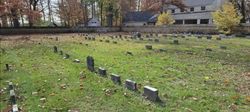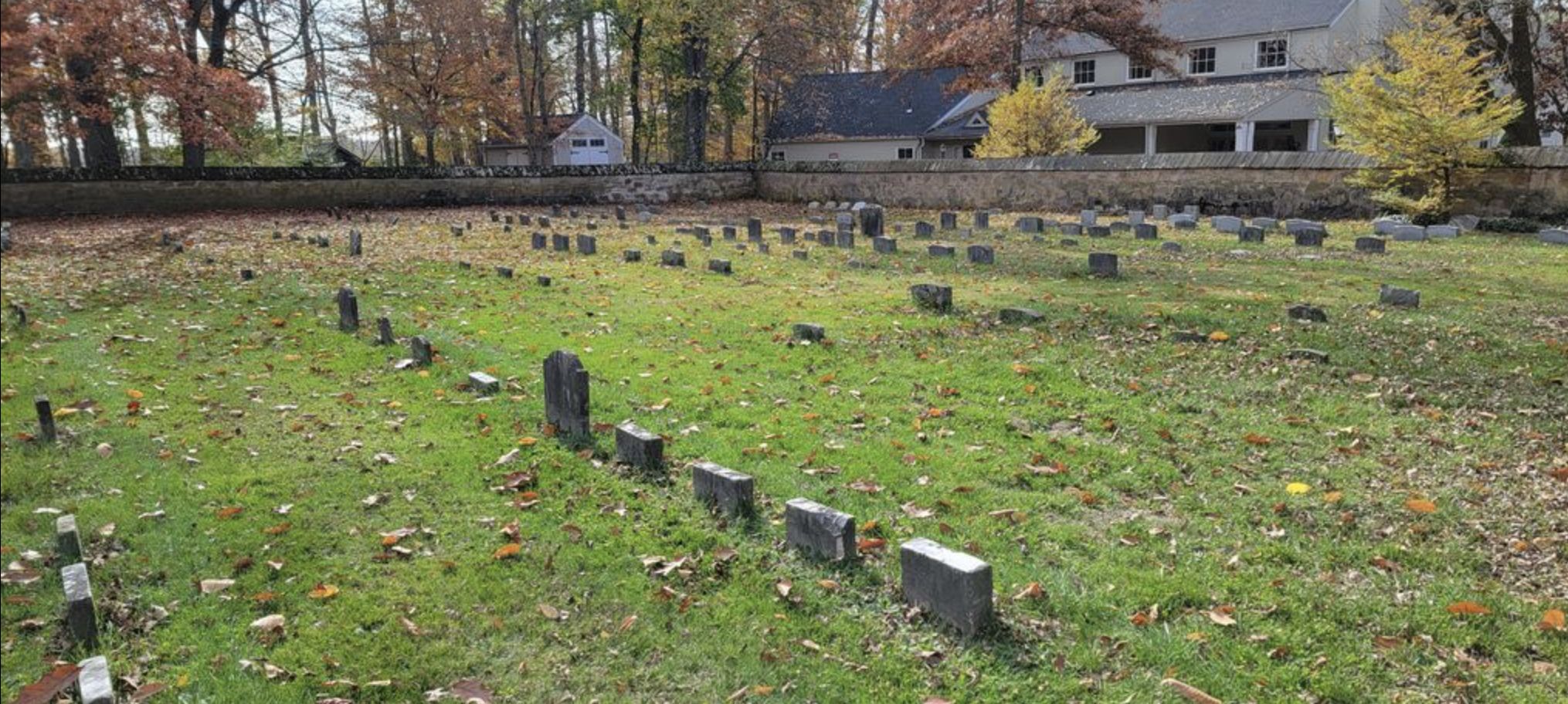John Stockton (1701-1758) was a son of Susanna (nee Witham) and Richard "The Builder" Stockton (c.1665-1709), and a grandson of Abigail (nee unknown) and Richard "The Emigrant" Stockton (c.1635-1707). John was born in the house now known as Morven, built by John's father. It is located at 55 Stockton Street, Princeton, New Jersey.
"Prince-Town, (in New-Jersey) May 23. Saturday last, after a painful illness, departed this Life, John Stockton, Esq; of this Place, in the 57th year of his Age. As his Life has been so generally useful, his Death apparently diffuses an universal Sorrow. For about twenty-five years past, he has, with great Acceptance, executed the Office of a Magistrate, and about half the Time, that of a Judge of the Court of Common Pleas: His Judiciousness, Moderation, and Integrity, in his various Decisions as a Magistrate, rendered him peculiarly dear to the Place and Country in which he lived; where his Merit acquired him a great Influence. As his Situation in Life made it unnecessary for him to regard lucrative Motives, in the Discharge of his public Offices, so his unaffected and steady Piety to God, and universal benevolence to Mankind made him indefatigable in his Endeavors to compose Differences, promote Peace and Harmony, suppress Immorality, and encourage Virtue and true Religion. In the social Duties of Life, he distinguished himself as a tender Husband, an affectionate Father, a kind Master, and a faithful Friend: His last Sickness he supported with great Patience and Composure, and received the Evidences of his approaching Dissolution, with that Magnanimity which true Religion inspires. It pleased God to give him strong Confidence in the Truth of the Gospel, and the Merits of his Lord and Saviour; and when he found his "Flesh and his Heart to fail," he doubted not, and has left his Acquaintances not the least Room to doubt, but that "God was the Strength of his Heart and his Portion for ever."
- The New York Mercury, June 5, 1758
John was the father of Richard "The Signer" Stockton (1730-1781) who signed the Declaration of Independence.
Will of Richard "The Builder" Stockton:
1709 25th d. 4th m. (June). Stockton, Richard, of Middlesex Co.; will of. Wife Susanna. Mother Abigall Stockton. Children - Richard, Samuel, Joseph, Robert, John, Thomas; brother Philip Philips. Land, 300 acres betw. John Horner and Henry Greenland, 300 a. at the rear of John Horner, 600 a. on the other side of Stoney Brook, 200 a. adjoining the meadow betw. Benj. Randell and William Holding, 1000 a., part of it the home farm, 400 a. at Ananicke, inherited from the father, 150 a. more undescribed. Personal property (negro slaves). The wife sole executrix with John Stockton, Samuel Wilson and Benjamin Clarke as trustees of the will. Witnesses - Thomas Lescitor, Jane Stoughton, Henry Mashon, Joseph Worth, John Killey, Benjamin Clarke. Proved August 15, 1709. Lib. I, p. 242
Bio by Jerry J. Stockton
John Stockton (1701-1758) was a son of Susanna (nee Witham) and Richard "The Builder" Stockton (c.1665-1709), and a grandson of Abigail (nee unknown) and Richard "The Emigrant" Stockton (c.1635-1707). John was born in the house now known as Morven, built by John's father. It is located at 55 Stockton Street, Princeton, New Jersey.
"Prince-Town, (in New-Jersey) May 23. Saturday last, after a painful illness, departed this Life, John Stockton, Esq; of this Place, in the 57th year of his Age. As his Life has been so generally useful, his Death apparently diffuses an universal Sorrow. For about twenty-five years past, he has, with great Acceptance, executed the Office of a Magistrate, and about half the Time, that of a Judge of the Court of Common Pleas: His Judiciousness, Moderation, and Integrity, in his various Decisions as a Magistrate, rendered him peculiarly dear to the Place and Country in which he lived; where his Merit acquired him a great Influence. As his Situation in Life made it unnecessary for him to regard lucrative Motives, in the Discharge of his public Offices, so his unaffected and steady Piety to God, and universal benevolence to Mankind made him indefatigable in his Endeavors to compose Differences, promote Peace and Harmony, suppress Immorality, and encourage Virtue and true Religion. In the social Duties of Life, he distinguished himself as a tender Husband, an affectionate Father, a kind Master, and a faithful Friend: His last Sickness he supported with great Patience and Composure, and received the Evidences of his approaching Dissolution, with that Magnanimity which true Religion inspires. It pleased God to give him strong Confidence in the Truth of the Gospel, and the Merits of his Lord and Saviour; and when he found his "Flesh and his Heart to fail," he doubted not, and has left his Acquaintances not the least Room to doubt, but that "God was the Strength of his Heart and his Portion for ever."
- The New York Mercury, June 5, 1758
John was the father of Richard "The Signer" Stockton (1730-1781) who signed the Declaration of Independence.
Will of Richard "The Builder" Stockton:
1709 25th d. 4th m. (June). Stockton, Richard, of Middlesex Co.; will of. Wife Susanna. Mother Abigall Stockton. Children - Richard, Samuel, Joseph, Robert, John, Thomas; brother Philip Philips. Land, 300 acres betw. John Horner and Henry Greenland, 300 a. at the rear of John Horner, 600 a. on the other side of Stoney Brook, 200 a. adjoining the meadow betw. Benj. Randell and William Holding, 1000 a., part of it the home farm, 400 a. at Ananicke, inherited from the father, 150 a. more undescribed. Personal property (negro slaves). The wife sole executrix with John Stockton, Samuel Wilson and Benjamin Clarke as trustees of the will. Witnesses - Thomas Lescitor, Jane Stoughton, Henry Mashon, Joseph Worth, John Killey, Benjamin Clarke. Proved August 15, 1709. Lib. I, p. 242
Bio by Jerry J. Stockton










